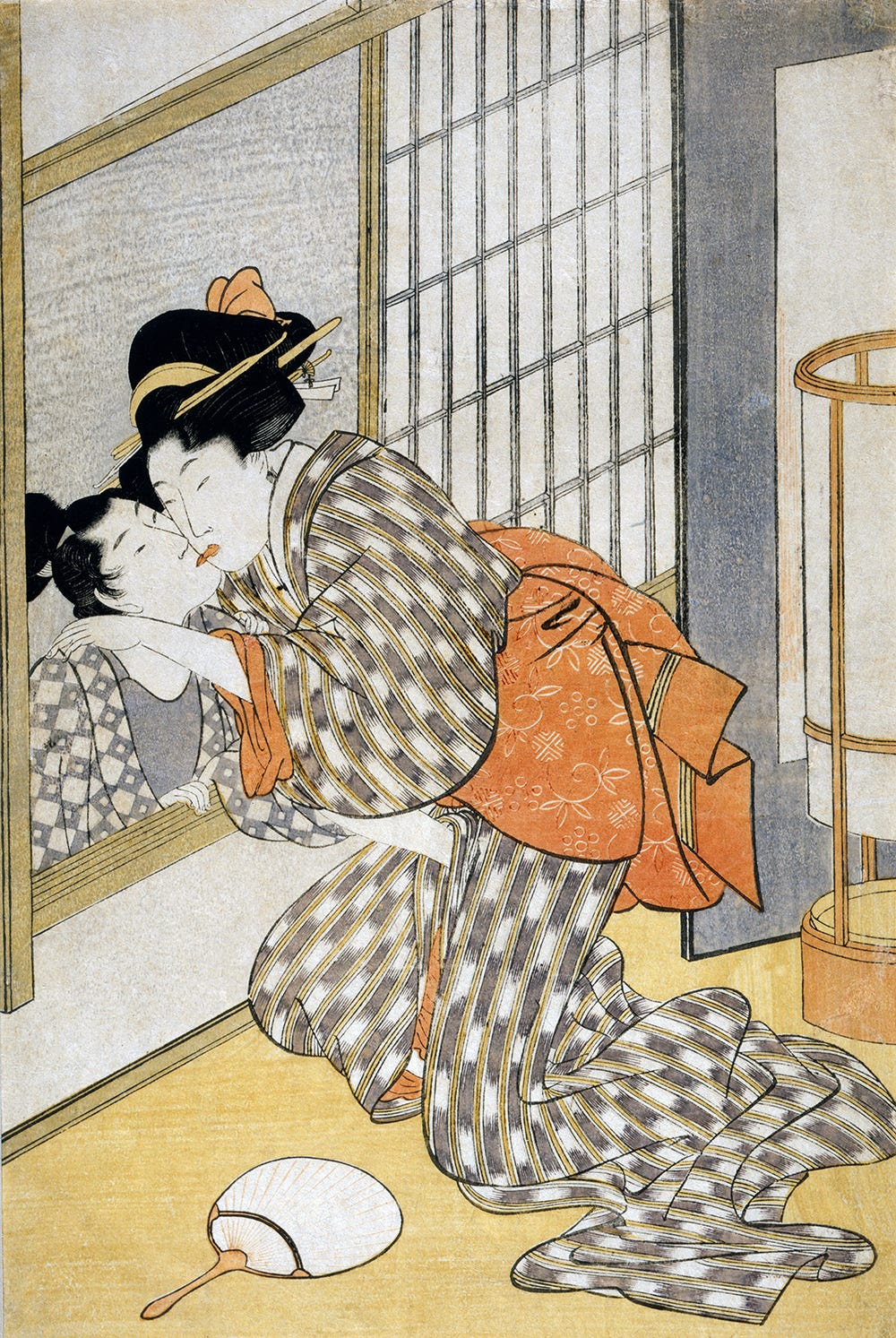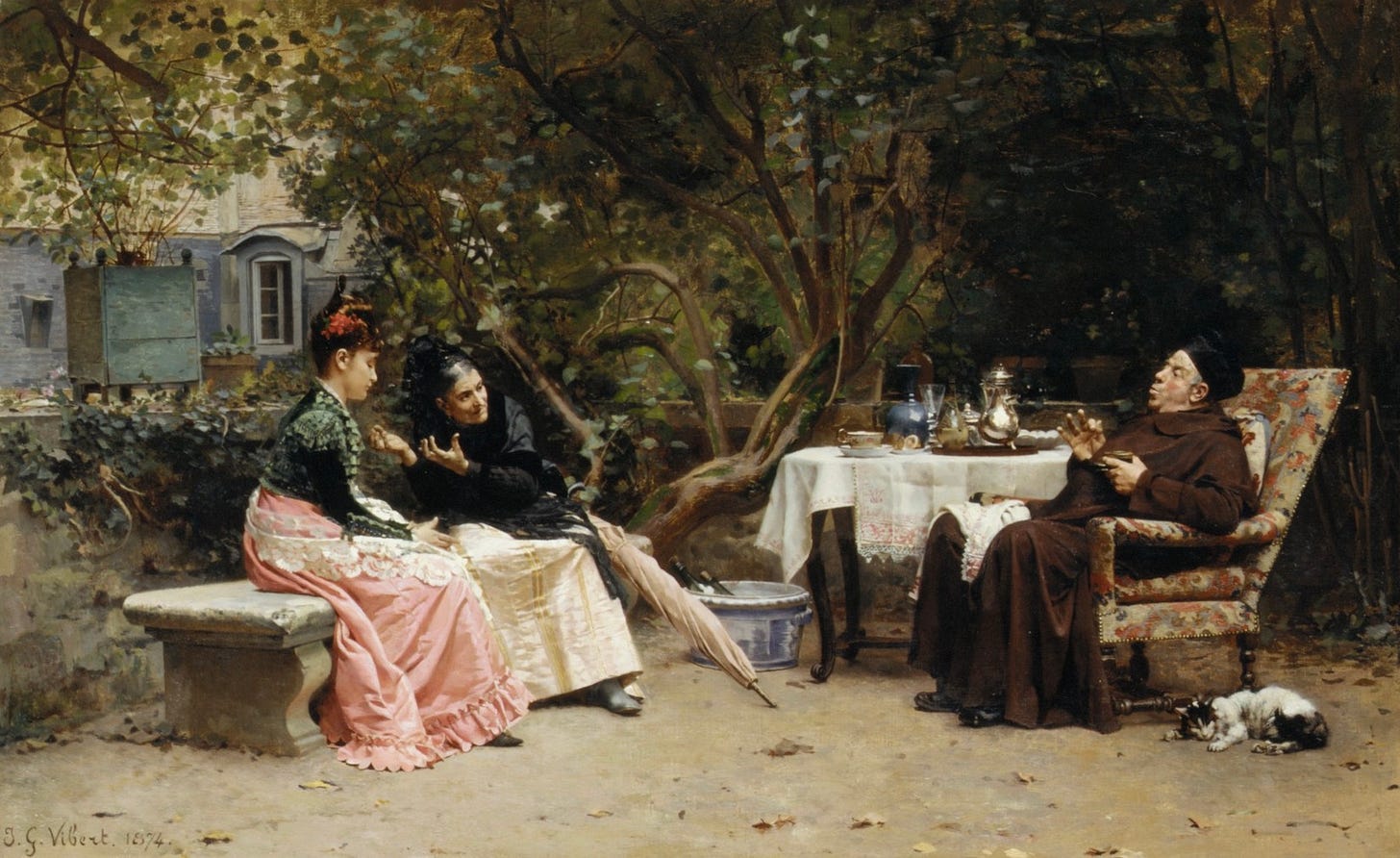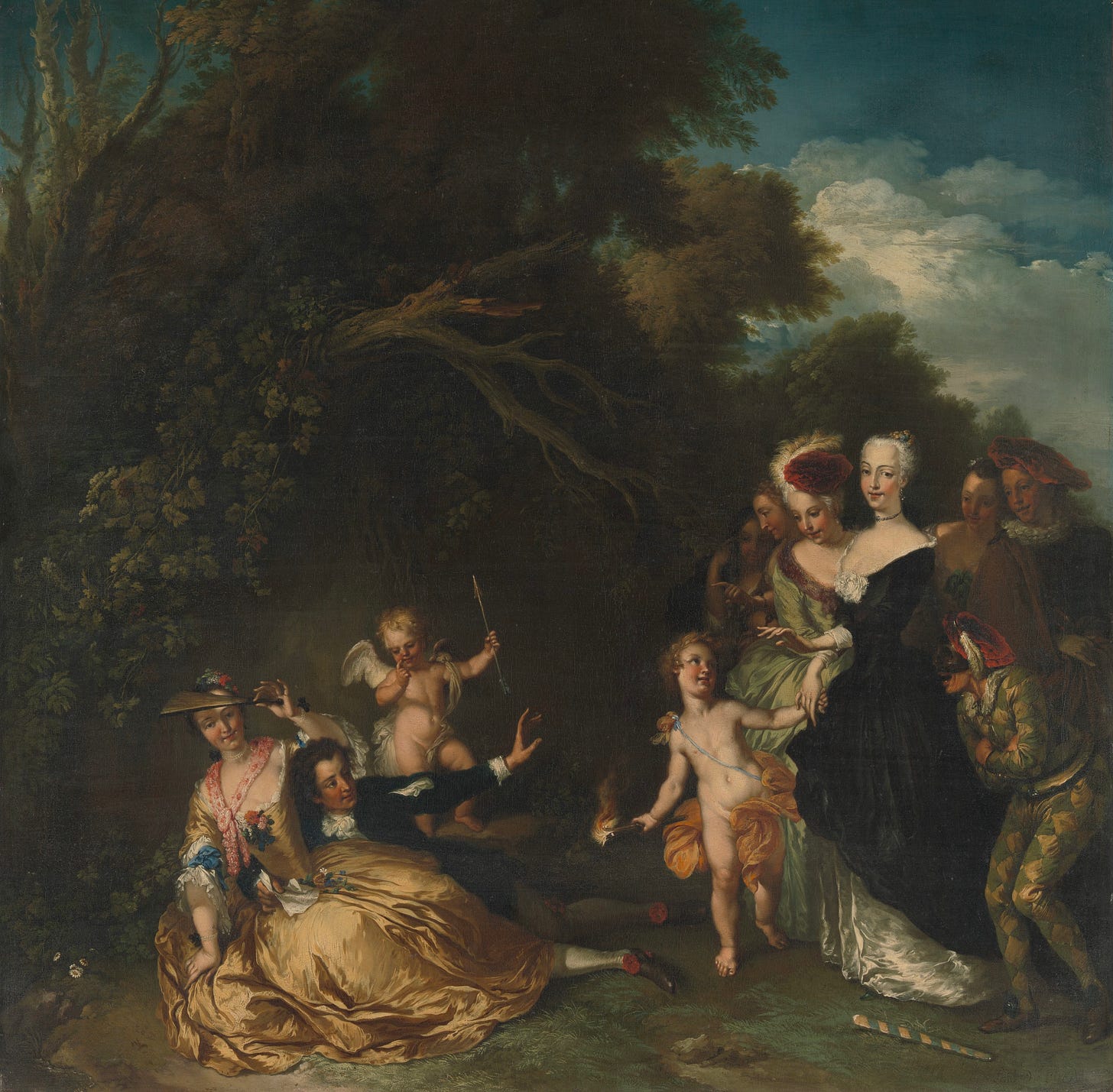Selected from the Spring 2020 issue of Lapham’s Quarterly.

“The deuce!” he thought. “Now this fellow is going around everywhere gossiping about me. A thing like this can easily spread through the whole city. The jackass!”
—Anton Chekhov, 1883
The newsmonger is one who always has ready gossip from some unheard-of soldier, or a slave belonging to one Asteus, a piper, or Lycon, an obscure contractor, just back from the battlefield. The authorities for his reports are of the sort that you can never get hold of.
—Theophrastus, c. 320 BC
One of our correspondents very justly observes that “there is nobody of whom something disagreeable may not be said.”
—James Thomson Callender, 1802
As an old journalist—I have been editing papers and magazines for forty years—I give it as my deliberate judgment that far more harm has been done to public morals by suppressing unpleasant news than by printing it.
—W.T. Stead, 1910
The best scandals, the ones most engaging to follow as they unfold, have a good deal in common with literature, and much great literature is generated by small-time, nonfamous scandals.
—Ron Rosenbaum, 2020
If it had not been for a pack of poetasters, scribblers, and moralists, who hung about our waiting-women and took down their slanders, our epoch would have appeared in literature as a well-conducted age.
—Honoré de Balzac, 1818

Her power was sinking; everything must sink under such a proof of family weakness, such an assurance of the deepest disgrace.
—Jane Austen, 1813
“Her name is my name,” he said, clenching his fist in his violence, “and my name is hers. She can have no good name distinct from me—no name at all.”
—Anthony Trollope, 1879
There are many civil questions that arise between individuals in which it is not so important the controversy be settled one way or another as that it be settled.
—William Howard Taft, 1921
Sir Benjamin: Well—certainly, Lady Teazle, that lord of yours is a strange being; I could tell you some stories of him would make you laugh heartily—if he were not your husband. Lady Teazle: Oh, pray don’t mind that—come do let’s hear them. —Richard Brinsley Sheridan, 1777
There is nothing in which all the world agree but in running down some obnoxious individual.
—William Hazlitt, 1828

It is one thing to slander, another to accuse.
—Marcus Tullius Cicero, 56 BC
Harriot: [humorously putting her hand on Emily’s mouth] For heaven’s sake, Emily, be not thus humble! Without observation, say you! Why, I would rather be paragraphed in the newspaper than not distinguished at all. Emily: Paragraphed in the newspaper! Harriot: Yes, my dear, although said paragraph should hold me up in the most ridiculous point of view! —Judith Sargent Murray, 1796
Gossip is the opiate of the oppressed.
—Erica Jong, 1973
I am personally acquainted with hundreds of journalists, and the opinion of the majority of them would not be worth tuppence in private, but when they speak in print, it is the newspaper that is talking (the pygmy scribe is not visible), and then their utterances shake the community like the thunders of prophecy.
—Mark Twain, 1873
Reputation, like beavers and cloaks, shall last some people twice the time of others.
—Douglas Jerrold, 1840

From the majority of persons, of course, we never looked for anything but condemnation.
—George Eliot, 1855
Wicked words Hurt more than swords. —Aesop, c. 600 BC
I find the pain of a little censure, even when it is unfounded, is more acute than the pleasure of much praise.
—Thomas Jefferson, 1789
Angelo: Then must your brother die. Isabella: And ’twere the cheaper way. Better it were a brother died at once Than that a sister, by redeeming him, Should die for ever. Angelo: Were not you then as cruel as the sentence That you have slandered so? Isabella: Ignomy in ransom and free pardon Are of two houses; lawful mercy Is nothing kin to foul redemption. —William Shakespeare, 1604
If he could have known beforehand the evils attendant on a public career, namely, fears, hatreds, calumnies, and contentions, he would have taken that road which led directly to death.
—Plutarch, 324 BC

Until you’ve lost your reputation, you never realize what a burden it was or what freedom really is.
—Margaret Mitchell, 1936
As, if I can prove the tradesman a bankrupt, the physician a quack, the lawyer a knave, and the divine a heretic, this will destroy their respective actions; for though there may be damage sufficient accruing from it, yet if the fact be true, it is damnum absque injuria; and where there is no injury, the law gives no remedy.
—William Blackstone, 1768
If he had spent it all, and all the additional wealth it has enabled him to amass in other fields, in charitable institutions, the crime, the scandal, and the tragedy would remain.
—E.D. Morel, 1906
Spots are better worn out by time and patience than wiped off by hasty zeal of reputation.
—Joseph Glanvill, c. 1673
Lapham’s Quarterly is a project of the American Agora Foundation, which is dedicated to fostering an appreciation of, and acquaintance with, the uses and value of history. Please help us continue our work. Donate today.
SCANDAL
Spring 2020





